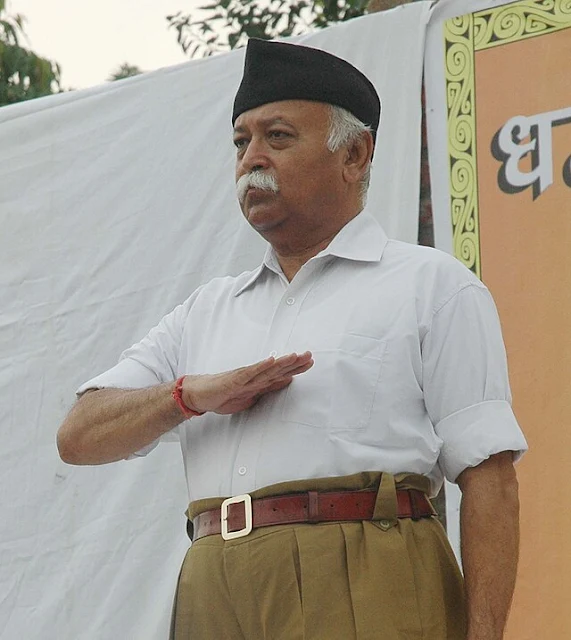Actor Kangana Ranaut stirred controversy when she stated that India became independent in 2014, coinciding with Narendra Modi's rise to power. This marked the first time the BJP secured a majority on its own. Her claim implied that India had been a "slave" nation before, either under "foreign rulers" or governments committed to secular, democratic values. She suggested that with Modi in power, full-fledged Hindu nationalism had been realized. Similarly, actor Vikrant Massey recently asserted that India attained freedom in 2014 when "we" could freely express Hindu identity.
Adding to these contentious claims, RSS Chief Mohan Bhagwat declared that January 22, 2024, should be recognized as India's true Independence Day. Speaking in Indore, he proposed celebrating this day as "Pratishtha Dwadashi," marking India's "true independence" after centuries of foreign domination. According to Bhagwat, this date symbolizes the installation of Lord Ram's ideals and values into India's identity, transcending religious boundaries. He also alleged that temple destruction by invaders was aimed at eradicating India's "self."
Bhagwat connected India's progress to the construction of the Ram Temple, claiming that India's livelihood and unity stem from this cultural resurgence. He criticized post-1947 policies, such as socialism and poverty alleviation, for failing to propel India forward, contrasting them with the achievements of countries like Japan and Israel.
Bhagwat's narrative, however, seems to seek justification for the Babri Mosque demolition and overlooks India's rich cultural and religious diversity. While Lord Ram is significant, Indian traditions also honor Lord Shiva, Lord Krishna, Goddess Kali, Mahavir, Buddha, Nanak, and Kabir, among others. These figures collectively embody India's diverse cultural fabric.
Historical and genetic studies reveal that Aryans were also migrants, following earlier settlers. Historical rulers—be it the Cholas, Shakas, Huns, Mughals, or Khaljis—did not merely conquer; they became part of India's cultural tapestry. Unlike the British, these rulers integrated into Indian society without exploiting its resources on the scale of colonial plunder.
Nehru aptly described India's civilization as "an ancient palimpsest," with layers of culture and thought interwoven over centuries. Temple destructions during medieval times were often driven by power struggles and wealth acquisition, not religious zeal. For example, while Aurangzeb destroyed some temples, he also patronized many others. Similarly, Raja Harshdev of Kashmir looted temples for their riches, demonstrating that such actions transcended religion.
Bhagwat's interpretation reflects a narrow, Brahminical worldview. India as we know it emerged during colonial rule, which was the real period of slavery. Earlier rulers contributed to India's composite culture, while British policies, like "divide and rule," propagated the myth of prior rulers as mere plunderers. Unlike colonial exploiters, earlier dynasties did not drain India's wealth abroad.
India’s independence on August 15, 1947, and the adoption of its Constitution on January 26, 1950, were the results of a massive anti-colonial movement embracing the values of liberty, equality, and fraternity. Those promoting alternative dates for independence often align with sectarian nationalism, disregarding these foundational values.
Bhagwat's remarks dismiss the economic and social foundations laid before the divisive politics of the Ram Temple movement gained momentum in the 1980s and 1990s. Since then, India has seen a decline in indices related to health, education, and poverty. Growth and unity have suffered due to the prioritization of religious identity over inclusive development.
India’s freedom struggle and its heroes deserve respect. Dismissing their sacrifices in favor of divisive narratives insults their legacy and undermines the values that define modern India.
---


Comments